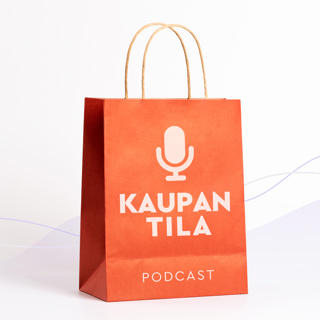
Andrew Sheets: Is the Dollar Losing It’s Safe Haven Status?
On today's episode, Chief Cross-Asset Strategist Andrew Sheets explains how three of the dollar’s most attractive qualities could be shifting right before our eyes.
11 Loka 20192min

Michael Zezas: The Key Variable in U.S.-China Trade Talks
On today's episode, Head of U.S. Public Policy Michael Zezas says when it comes to trade, movement toward a meaningful compromise will likely come down to one fundamental variable.
9 Loka 20192min

Mike Wilson: An Unsatisfying Market for Bulls and Bears?
On today’s episode, Chief Investment Officer Mike Wilson says both bulls and bears were likely a bit frustrated trying to trade last week's sell-off and rally. So what’s the next move for investors?
7 Loka 20193min

Andrew Sheets: The 3 Most Powerful Market Indicators?
On today's episode, Chief Cross-Asset Strategist Andrew Sheets says despite the myriad models used to assess the direction of markets, three simple indicators may be the most valuable.
4 Loka 20193min

Michael Zezas: U.S.-China Trade: The Outlook for Fall
On today's episode, A number of trade-related events on the fall calendar could mean progress—or an escalation—on the trade impasse. Head of U.S. Public Policy Michael Zezas provides an overview.
2 Loka 20192min

Special Series: U.S. Housing Faces a Generational Turning Point
On this special episode, Equity Analyst Richard Hill examines the coming seismic shift for investors as Baby Boomers pass the housing baton to Millennials and Generation Z.
1 Loka 20193min

Mike Wilson: Are Markets Rethinking Pricey Growth Stocks?
On today’s episode, Chief Investment Officer Mike Wilson explains why markets may be having a change of heart on expensive—and sometimes unprofitable—growth stocks.
30 Syys 20193min

Andrew Sheets: A Tale of Two Oil Price Spikes
On today’s podcast, Chief Cross-Asset Strategist Andrew Sheets says oil prices tend to spike for two very different reasons and the distinction for investors is quite important.
27 Syys 20192min





















